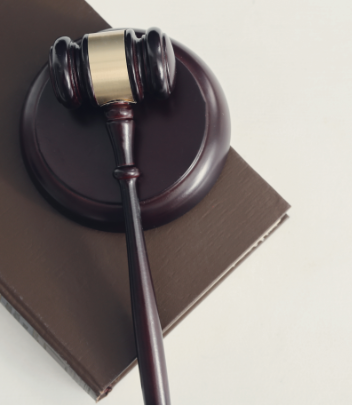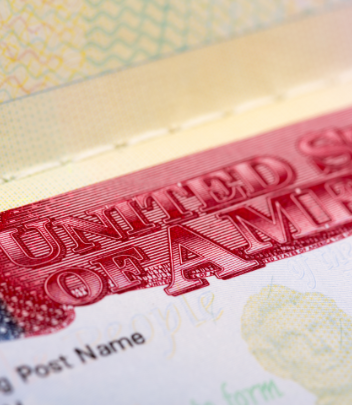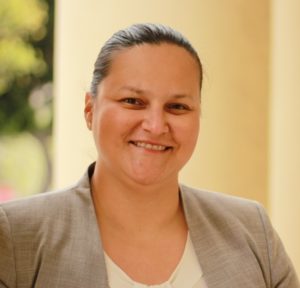Underaged Drinking
Underage Drinking Defense Attorney San Diego
Just like in other states, California has specific underage drinking laws that specifically cover the younger demographic. California underage drinking laws forbid people below 21 years of age from drinking, purchasing or being in possession of alcohol.
Of course, underage drinking laws exist because some individuals that fall within the underage category still end up drinking alcohol.
Why Do Some Adolescents Drink?
Young people can get exposed to alcohol in various ways: advertisements, television, film, social media, social gatherings and at home. One of the key messages in alcohol advertising is that people need alcohol to enjoy themselves or have a good time.
Since adolescents are still at an impressionable age, their adult role models and peers can influence how early (or late) they start drinking themselves. Some teenagers who drink do so for various reasons, such as the following:
- Curiosity
- Peer pressure
- Rebellion
- Boredom
- Relaxation
- Self-confidence
- Loss of inhibition
- Celebration or social drinking
- Desire for acceptance and belonging
- False concept of adulthood or maturity
- As attempts at coping with stress, such as loneliness, relationship issues, academic requirements
What Are the Health Risks?
Drinking alcohol poses several health risks, whether it involves young people or adults. One of the most dangerous effects of long-term alcohol use involves the brain – and the psychological and physiological effects could be lifelong.
Brain Effects
Throughout the teenage years and well into the twenties, the human brain is still developing. It undergoes several changes as the synapses connecting the various neurons become increasingly complex and more efficient at processing and transmitting information.
Drinking alcohol at a young age can interfere with and have deleterious effects on the process of brain development. Alcohol consumption can lead to potential brain damage, particularly on the hippocampus, which plays a vital role in consolidating information from short-term memory, long-term memory and spatial memory.
Liver Effects
Compared to adults, teenagers have more permeable vascular walls and underdeveloped liver enzyme mechanisms. This is why the liver of an adolescent tends to collapse faster under the influence of alcohol than an adult’s.
Alcohol causes the liver cells to undergo fatty degeneration and leads to dysfunction in the synthesis of various nutrients. The pancreas can also get disrupted in the process, and developing pancreatitis and diabetes becomes a possibility.
Growth and Endocrine Effects
Adolescent drinking can alter hormones in the body, thereby disrupting growth and puberty.
Numerous effects of alcohol-induced hormonal dysregulations on the body include various disorders such as the following:
- Body growth defects
- Bone disease
- Thyroid problems
- Immune dysfunction
- Stress abnormalities
- Reproductive deficits
- Cancers
- Psychological and behavioral disorders
Underage drinkers are more susceptible to alcohol addiction than adults who start drinking later. Habitual teenage drinkers are also at a higher risk for developing depression, anxiety and low self-esteem.
What Are the Dangers of Under Aged Drinking?
The legal consequences of underage drinking and driving are severe as young people who drink put their lives and those of others in jeopardy when they become unruly, violent or insist on driving.
Getting drunk leads young people to exhibit risky behavior, which could lead to other problems, such as accidents, alcohol poisoning, unplanned pregnancy, and the disruption of relationships and education.
Binge Drinking
Young people in a hurry to experience the effects of alcohol usually resort to binge drinking. When this happens, the one drinking consumes a large amount of alcohol within a short span of time.
For males, binge drinking involves downing five or more drinks within two hours, and four or more drinks within the same period for females.
Alcohol Poisoning
Alcohol poisoning or alcohol overdose occurs when too much alcohol accumulates in the blood, leading to parts of the brain shutting down. When left unattended for too long, alcohol poisoning can be fatal and cause brain damage or death.
Life-Changing Injury or Death
While it’s safe to assume that majority of people are aware of underage drinking, the laws forbidding it and the legal consequences of committing such, knowing about these things hasn’t stopped underage drinkers from breaking the law.
Alcohol intake is generally harmful and even more so for young people. However, it is underage drinkers who drive that pose a great risk to themselves and others on the road.
In fact, according to the CDC, young drivers are 17 times more likely to be involved in a fatal crash if they have a blood alcohol concentration (BAC) of .08% compared to when they have absolutely no alcohol in their system.
Underage Drinking Is Related to Adult Drinking
The relationship between youth and adult drinking (including binge drinking) has already been established in states and communities. In fact, a 5 percent increase in the incidence of adult binge drinking in a community has been associated with a 12 percent increase in the incidence of underage drinking.
Underage Drinking Is Preventable
State policies, programs and the law can help curb underage drinking, as well as alcohol abuse among adult drinkers.
These strategies include charging higher alcohol taxes, implementing dram shop or commercial host liability laws, regulating alcohol sellers or outlets, and strictly enforcing laws that prohibit the sale of alcohol to underage people. [no statistics available for this section]
California Health and Safety Code Section 25657-25668 HSC
Unless otherwise provided in Section 25667 or 25668, any person under 21 years of age found to be in possession of any alcoholic beverage in a public place or place open to the public is punishable by a fine of $250 or be required to perform not less than 24 hours or more than 32 hours of community service.
A subsequent violation is punishable as a misdemeanor and a fine of not more than $500, or be required to render not less than 36 hours or more than 48 hours of community service.
Penalties for Underage Drinking
Anyone caught violating underage drinking laws in California may be subject to fines, court-ordered community service, and possible jail time.
Other penalties for underage drinking may include the suspension of one’s driver’s license for a year. Even minors who do not yet have a driver’s license can have their driving privileges suspended. Repeat offenses are usually meted more severe penalties and these infractions can also stay on a person’s permanent record.
DUI and Underage Drinking – Zero Tolerance in California
There are two primary laws in California that address underage driving under the influence:
- Vehicle Code 23136: Zero tolerance law involving a BAC of .01% or higher
- Vehicle Code 23140: Underage driving involving a BAC of .05% or greater
These DUI laws both apply to juvenile California drivers below 21 years of age and can result in a one-year suspension of the concerned underage driver’s license.
Defending an Underage Drinking Charge in California
In California, there are certain legal defenses that may be applied in an underage drinking charge, such as the minor not being the owner of the alcohol or having obtained the alcohol for an adult, etc.
Without these defenses, the original charge is treated as a misdemeanor punishable by community service and/or a fine. Although the penalty may not seem substantial, a conviction will stay in one’s permanent criminal record, so fighting the charge is crucial.
Fight Back and Protect Your Rights With Ezquerro – Your Dedicated Criminal Defense Lawyer in California
If your child has an underage drinking charge in California, you need an expert criminal defense lawyer who knows the ins and outs of California underage drinking laws. Call Ezquerro today! NOTE TO THE CLIENT: Hi! I used the keyword underage driving as it appears to be the correct term used in both legal, medical and government references. Thanks!

Driving Under the Influence
Business Law & Social Offence

Violent Crimes
Family Law

Theft
Civil Disopedience & Social Offnce

loading ...
© COPYRIGHTS 2023 ALL RIGHTS RESERVED | PRIVACY POLICY AND TERMS AND CONDITIONS


